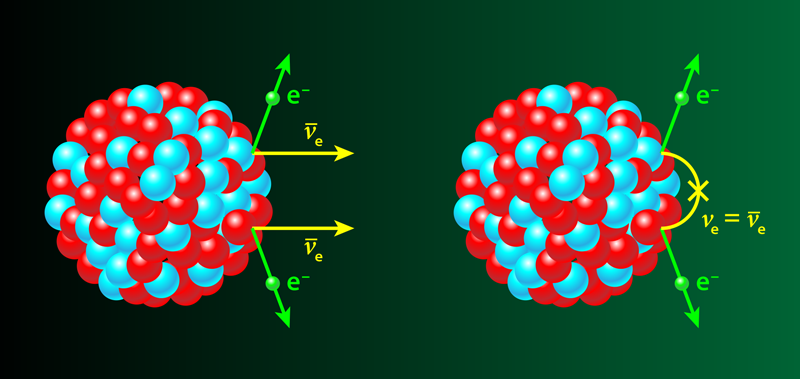
This week’s issue of Physical Review Letters (PRL) features the article “Search for the Majorana Nature of Neutrinos in the Inverted Mass Ordering Region with KamLAND-Zen” with Professor Hugon Karwowski and Dr Aobo Li as its co-authors. The piece was also highlighted in Physics Magazine and chosen as an “Editor’s Suggestion”.
In her evaluation of the significance of this article, Laura Baudis, the editor of the Physics Magazine and professor in the Department of Physics of the University of Zurich, believes that the research will help physicists further uncover the mystery of neutrino.
More information about Professor Karwowski and Dr Li can be found below:
Professor Hugon Karwowski’s research interests include photofission, few-body physics, neutrinos and applied nuclear physics. Some of his representative publications include the First measurement of the strange axial coupling constant using neutral-current quasi-elastic interactions of atmospheric neutrinos at KamLAND (Nov 2022); Abundances of Uranium and Thorium Elements in Earth Estimated by Geoneutrino Spectroscopy (Aug 2022); Exploring the multi-humped fission barrier of 238U via sub-barrier photofission (Apr 2013); Measurements of the^{48} Ca (γ, n) reaction (Sep 2011); Precision measurements of H2(d,p)H3 and H2(d,n)He3 total cross sections at Big Bang nucleosynthesis energies (Apr 2006). To learn more about Professor Karwowski, visit his Department of Physics and Astronomy faculty profile.
Dr Aobo Li is an interdisciplinary experimentalist of artificial intelligence (AI) and neutrino physics. He received his B.S. in physics at the University of Washington in 2015 and then completed his graduate work at Boston University. After receiving his PhD in 2020, Aobo joined the University of North Carolina at Chapel Hill as a Postdoctoral Research Associate and COSMS Fellow, working with Professor Julieta Gruszko on Germanium detector experiments while maintaining his partial involvement in KamLAND-Zen. Aobo initiated and led the Germanium Machine Learning (GeM) group, bringing AI solutions to two Germanium detector experiments: Majorana Demonstrator and LEGEND, while leveraging resources to educate domestic and international collaborators to acquire AI experience. His research work has recently been honored with the APS 2023 Dissertation Award in Nuclear Physics and the UNC Postdoctoral Award of Research Excellence (PARE).

